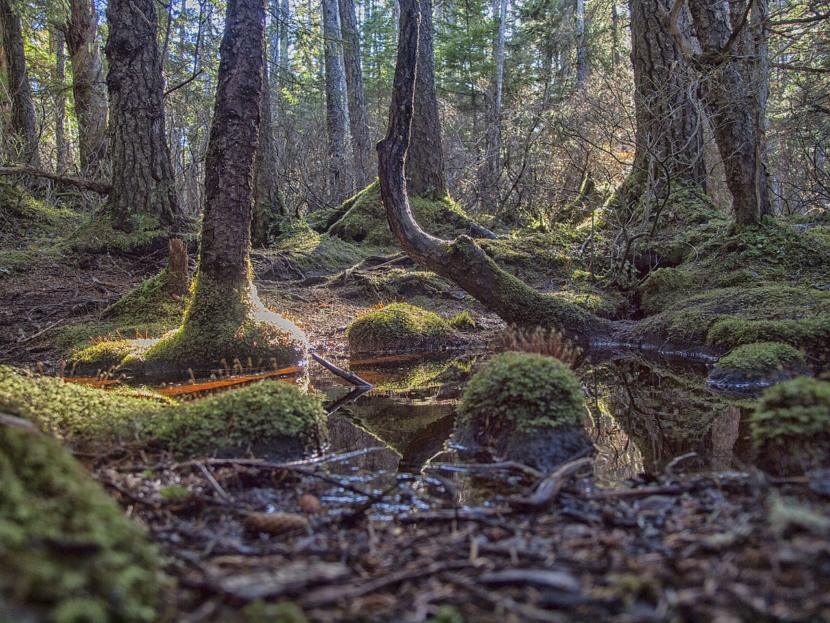
President Donald Trump is pushing for a full exemption of the Roadless Rule in Alaska, according to a Washington Post story published this week.
It’s what Alaska Gov. Mike Dunleavy and U.S. Sen. Lisa Murkowski, R-Alaska, have been advocating for. But it’s a big departure from what most people say they’d like to see happen in the nation’s largest national forest.
Recently, the president made a dad joke about Dunleavy on a phone call at a private political event in Soldotna. But he also referenced a few of the governor’s priorities.
“He’s doing something with your logging and all your other things.” Trump said. “We’re working on that together, and that’s moving along now.”
The U.S. Department of Agriculture is deciding right now if new roads should be built in the Tongass National Forest and to what degree. It could increase access to new stands of old-growth trees and, Murkowski says, renewable energy projects.
One option is to fully roll back the Roadless Rule in Alaska. But that’s one extreme.
The Roadless Rule has been in place for two decades across the country. And it makes it difficult to build new roads on national lands.
Niel Lawrence, a senior attorney with the Natural Resource Defense Council, thinks fully exempting the Tongass from the Roadless Rule is a bad idea.
“I think what we would see, as a practical matter, is a substantial increase in road building,” Lawrence said.
Lawrence doesn’t think repealing the Roadless Rule would restore Alaska’s struggling timber industry. Despite an increase in access, he said it’s not easy to make federal timber sales pencil out.
“Southeast Alaska is a really challenging, difficult, terrible place to run a logging industry,” Lawrence said. “It’s one giant wetland. It’s remote.”
But he said a full exemption could open up the floodgates for other types of environmental damage. For example, the agency could be allowed to build roads in areas designated as important habitat for deer or salmon.
Murkowski thinks that’s jumping to conclusions.
“If you were to have a full exemption, it doesn’t mean that all of a sudden anywhere anyone wants to put something, it’s going to happen,” Murkowski said. “I think it’s reactionary, and I would just urge greater caution.”
Residents in the Organized Village of Kake are concerned sweeping changes could affect the habitat in their backyard.
Kake Tribal President Joel Jackson said the salmon streams in Kake are still healing from the industrial logging of the past. He doesn’t want the see a full exemption being considered today, though he suspects it might be a possibility.
“As we move forward here and the economy gets tighter and tighter, it’s going to be more important to our community that we have food security,” Jackson said.
In an emailed statement, the U.S. Forest Service said it was still looking at a “range of alternatives to roadless management.” The agency expects a draft environmental impact statement to be released this fall and a final decision in 2020.
